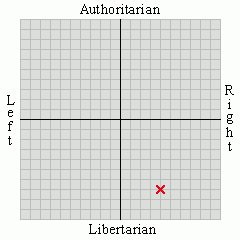Liam Byrne, the Chief Secretary to the Treasury, has written to Whitehall departments demanding an urgent review of all quangos to assess which can be abolished, merged with other bodies or taken back directly into their ministries. A number of quangos appear to have overlapping remits, including some covering skills, law and order, environment and transport. “The Ministry of Justice alone has 200 quangos,” said a Treasury spokesman.It's high fucking time, but doesn't go far enough for two reasons. First there's no commitment to actually do anything, just the usual guff about reviewing and assessing and looking at. They mention abolishing some and merging others or absorbing them into government departments, but it all sounds more aspirational than a definite aim. That makes me think that they really do recognize that most people in Britain are concerned about the government continuing to spend vast amounts of money it hasn't got, and since quangos are often unpopular with the public and more politically attractive to cut than stuff like health or education spending they seem like something they can attack without alienating their own voters. They will of course alienate the part of their client state that consists of the quangos and the £17 billion spent on them, but as I say there's no actual promise to get rid of any. Just a review. Second is the scope of the review itself. By all means look at duplicated functions but if there was a real desire to have a meaningful crackdown on quangos then the function of each and every quango should be scrutinized and the ultimate question then asked - should there even be a quango in the first place? Shouldn't it be for the private sector to fund and run if it wants one instead of a taxpayer funded government set up?
Those likely to be scrutinised first include some of the biggest bodies, such as the Higher Education Funding Council for England, the Environment Agency and the Health and Safety Executive. The outcome, aimed at shaving billions from total spending on quangos of about £64 billion, will feed into the next public spending review, although interim results are expected in the Pre-Budget Report this autumn.
Almost certainly we're not going to see anything like that, and until we do I don't think we should get too excited.


















